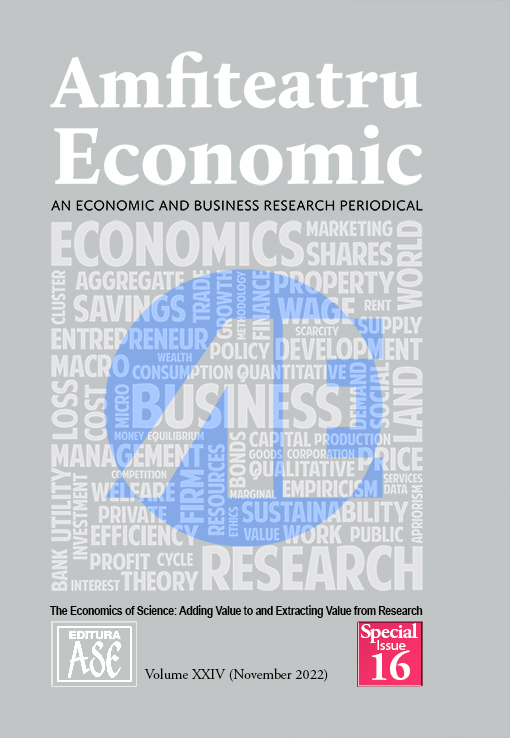The Market for Ideas and Its Validation Filters: Scientific Truth, Economic Profit and Political Approval
The Market for Ideas and Its Validation Filters: Scientific Truth, Economic Profit and Political Approval
Author(s): Octavian-Dragomir Jora, Matei-Alexandru Apăvăloaei, Mihai Vladimir Topan, Tudor Gherasim SmirnaSubject(s): Business Economy / Management, Governance, Economic policy, Political economy, Financial Markets
Published by: EDITURA ASE
Keywords: knowledge; science; academia; economics; market; politics; government;
Summary/Abstract: “The market for ideas” is placed by scholars and commoners between literary metaphors and catchy paraphrases. However, economics and political science, in addition to the sciences of cognition and communication, have at least something to say about the concept. The marketplaces of ideas entail a mixture of “cathedrae” (governed by the rigors of epistemological adequacy in finding scientific truth), “bazaars” (governed by profit-seeking in the confines of the law of demand and supply), and “agorae” (governed by the democratic rule of law or by the despotic rule of men). Ideas usually become scientific knowledge only after passing the test of reason, which needs to be informed by properly selected methodological toolkits. Far from being scarcity-proof objects, ideas are (serviceable) products (calculatedly) produced by (resourceful) producers, subject to economic scrutiny. Also, ideas are the offshoots of the more often than not overrated freedom of expression (tempered in the political arena by the power of either blunt majorities or active minorities). Thus, it is legitimate to continuously question which are and ought to be the mechanisms for securing the quest for truth, since only true ideas are ultimately prone to sustainable prosperity and peacefulness, though short-sighted profiteering and forced (or accomplice) obedience might suggest otherwise. Scientific truth (i.e., in social sciences) is caught amongst epistemic, as well as (pseudo-)economic and (poor) political filters. The purpose of this paper is to identify and investigate the frameworks for the evaluation and explanation of the markets for ideas, at the crossroads of the “true-false”, “profitable-unprofitable” and “approved-denied” mingled filters. The approach is equally conceptual (theoretical) and contextual (historical), and whilst being inevitably interdisciplinary, it ultimately relies on economic science, serving a dual role: as scientific decoder as well as decodable case study.
Journal: Amfiteatru Economic
- Issue Year: 24/2022
- Issue No: SI16
- Page Range: 884-911
- Page Count: 28
- Language: English

